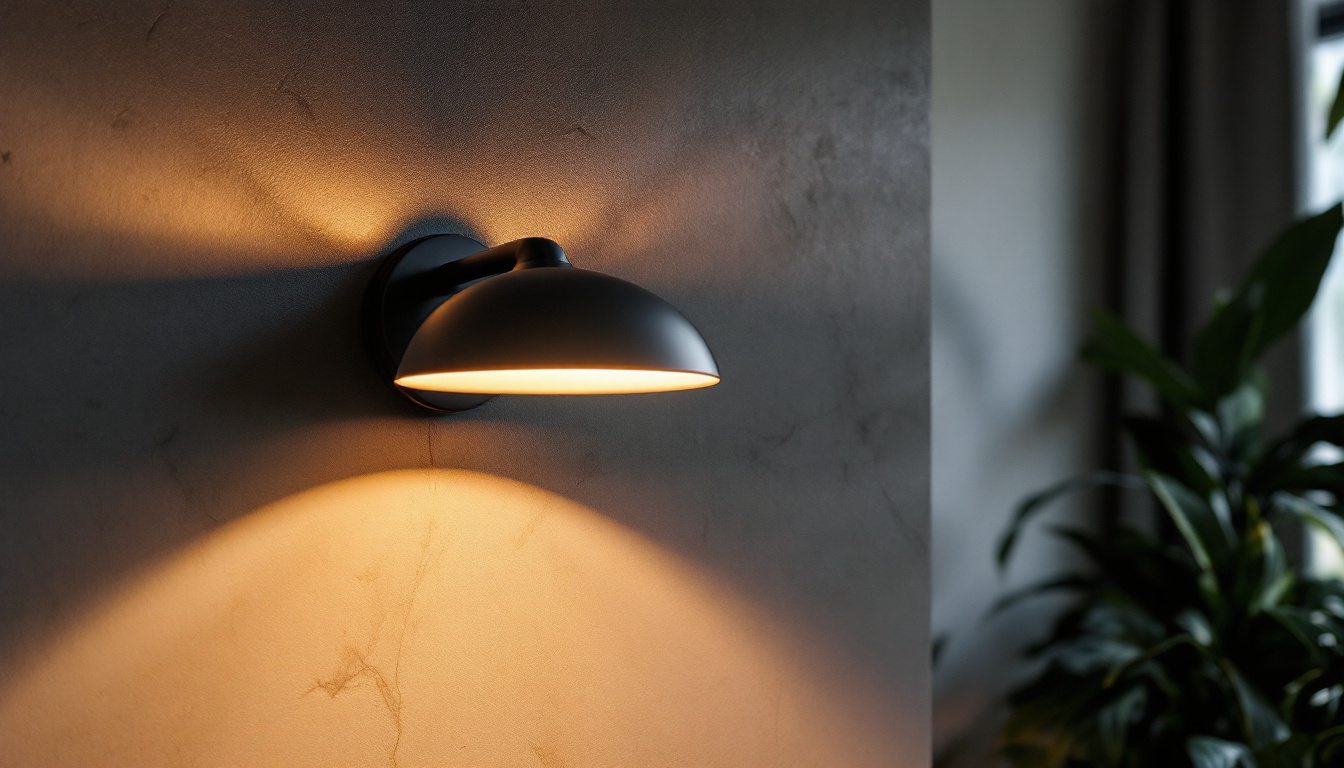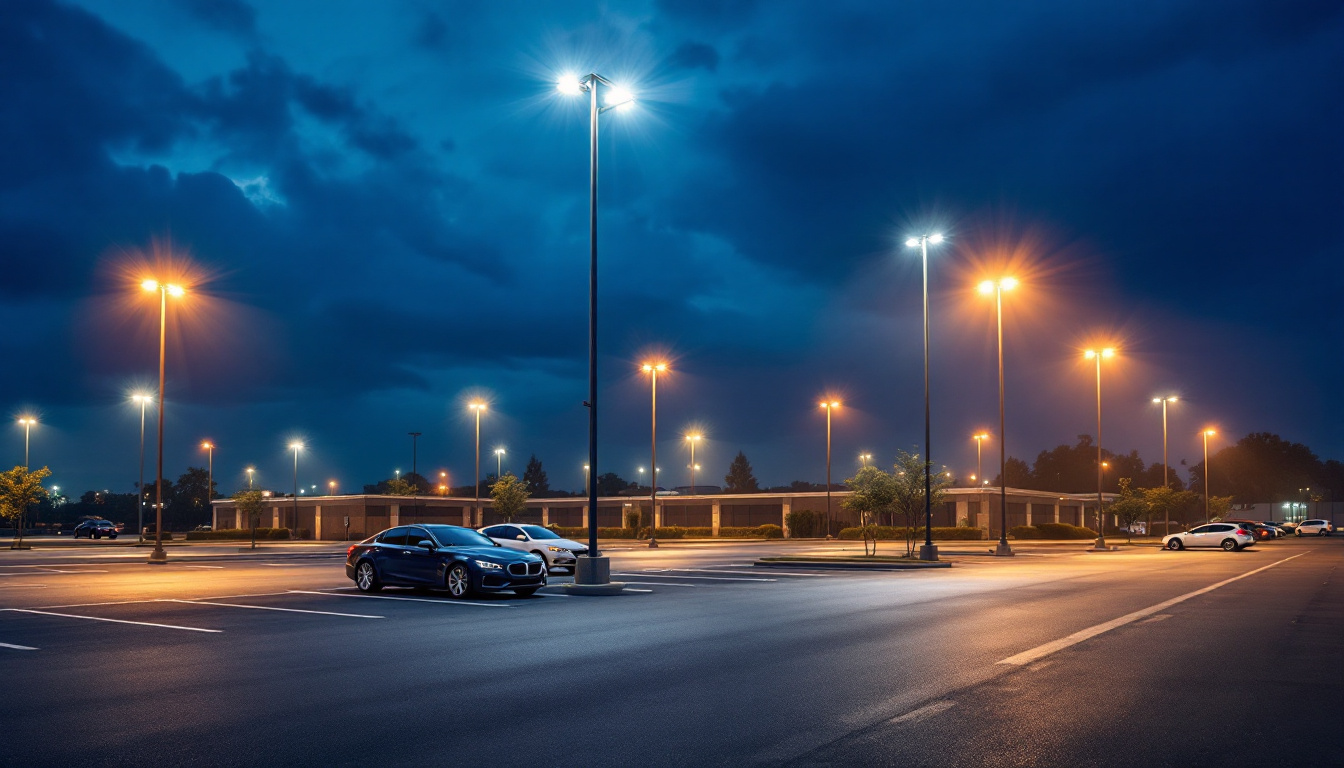
The lighting industry is undergoing a significant transformation, driven by advancements in technology and a growing awareness of energy efficiency. Among the various innovations, Type C bulbs have emerged as a noteworthy option for both residential and commercial applications. This article explores the characteristics, benefits, and applications of Type C bulbs, shedding light on their growing importance in the lighting industry.
Type C bulbs, commonly referred to as compact fluorescent lamps (CFLs), are a popular choice for many lighting applications. These bulbs are designed to be energy-efficient alternatives to traditional incandescent bulbs, offering a longer lifespan and reduced energy consumption.
Type C bulbs are characterized by their unique design, which typically includes a compact shape that allows for versatile installation. Unlike traditional bulbs, they contain a gas-filled tube that produces light when an electric current passes through it. This innovative design not only enhances efficiency but also allows for a more compact size, making them suitable for various fixtures.
Moreover, Type C bulbs are available in multiple color temperatures, ranging from warm white to cool daylight. This variety enables lighting contractors to select the perfect bulb for any environment, whether it’s a cozy living room or a bright office space. Additionally, many Type C bulbs are designed to be dimmable, providing even greater flexibility in creating the desired ambiance. This feature is particularly beneficial in settings where mood lighting is essential, such as restaurants or theaters, allowing users to adjust the brightness according to their needs.
One of the most significant advantages of Type C bulbs is their energy efficiency. These bulbs consume significantly less electricity compared to incandescent bulbs, which translates to lower energy bills for consumers. Additionally, their longer lifespan means fewer replacements, contributing to reduced waste and a lower environmental footprint.
As the world increasingly shifts towards sustainable practices, the adoption of Type C bulbs aligns with global efforts to reduce energy consumption and carbon emissions. Lighting contractors can play a crucial role in promoting these eco-friendly options to their clients, fostering a more sustainable future. Furthermore, many Type C bulbs are now manufactured with recyclable materials, further enhancing their environmental credentials. This shift not only supports the circular economy but also encourages consumers to make more informed choices about their lighting options, ultimately leading to a more sustainable lifestyle.
The versatility of Type C bulbs makes them suitable for a wide range of applications. From residential settings to commercial spaces, these bulbs are becoming a go-to choice for lighting contractors looking to provide efficient solutions.
In residential applications, Type C bulbs are often used in fixtures such as table lamps, ceiling lights, and outdoor lighting. Their ability to provide bright, clear light while consuming less energy makes them an attractive option for homeowners looking to reduce their electricity bills.
Additionally, the variety of styles and color temperatures available allows homeowners to create the desired ambiance in their spaces. Whether it’s a warm glow for a cozy evening or bright light for reading, Type C bulbs can meet diverse lighting needs. Furthermore, their compact design makes them easy to install in a variety of fixtures, from chandeliers to recessed lighting, enabling homeowners to seamlessly integrate them into their existing decor. This flexibility not only enhances the aesthetic appeal of a home but also allows for creative lighting solutions that can highlight architectural features or artwork.
In commercial and industrial environments, the benefits of Type C bulbs are even more pronounced. Businesses are increasingly adopting these energy-efficient bulbs to reduce operational costs and improve lighting quality. For instance, retail stores benefit from the bright, consistent light that enhances product visibility, while offices can create a productive work environment with well-distributed lighting.
Moreover, many businesses are now required to comply with energy efficiency regulations, making Type C bulbs an ideal choice. By switching to these bulbs, companies can not only meet regulatory standards but also project a commitment to sustainability, which can enhance their brand image. In warehouses and manufacturing facilities, the durability and long lifespan of Type C bulbs reduce the frequency of replacements, minimizing downtime and maintenance costs. Additionally, their ability to perform well in various temperatures makes them suitable for environments that experience fluctuations in climate, ensuring reliable lighting solutions regardless of the setting.
Type C bulbs offer numerous advantages that make them an appealing choice for lighting contractors and their clients. Understanding these benefits can help in making informed decisions when selecting lighting solutions.
One of the standout features of Type C bulbs is their longevity. These bulbs typically last up to ten times longer than traditional incandescent bulbs. This extended lifespan means fewer replacements, which can save both time and money for homeowners and businesses alike.
Furthermore, Type C bulbs are designed to withstand frequent switching on and off, making them suitable for areas where lights are used intermittently. Their durability also means they are less likely to break, which is particularly beneficial in commercial settings where safety is a priority. In addition to their physical resilience, many Type C bulbs are constructed with advanced materials that enhance their performance in various environmental conditions, such as high humidity or extreme temperatures, making them a versatile option for both indoor and outdoor applications.
While the initial cost of Type C bulbs may be higher than that of incandescent bulbs, the long-term savings are significant. The reduced energy consumption leads to lower electricity bills, and the extended lifespan means fewer replacements. Over time, the total cost of ownership for Type C bulbs is often much lower than that of traditional lighting options.
This cost-effectiveness is an essential selling point for lighting contractors when discussing options with clients. By highlighting the financial benefits, contractors can encourage clients to make the switch to Type C bulbs, ultimately leading to greater satisfaction and loyalty. Additionally, many regions offer incentives or rebates for using energy-efficient lighting solutions, further enhancing the financial appeal of Type C bulbs. This not only helps clients save money but also contributes to a more sustainable environment by reducing overall energy consumption and carbon footprint.
Despite the many advantages of Type C bulbs, there are challenges and considerations that lighting contractors should be aware of when recommending these products to clients.
The upfront cost of Type C bulbs can be a barrier for some consumers. While the long-term savings are substantial, the initial investment may deter clients who are accustomed to lower-priced incandescent options. Lighting contractors can address this concern by providing clear comparisons of lifetime costs and energy savings, helping clients see the bigger picture. It’s also beneficial to highlight the environmental impact of using Type C bulbs, as they consume less energy and have a longer lifespan, which ultimately reduces waste. By framing the discussion around sustainability, contractors can appeal to eco-conscious clients who are more likely to invest in energy-efficient solutions.
Another consideration is the compatibility of Type C bulbs with existing fixtures. While most fixtures can accommodate these bulbs, some may require modifications or specific types of sockets. Lighting contractors should be prepared to assess clients’ existing lighting systems and recommend appropriate solutions to ensure seamless integration. Additionally, it’s important to educate clients about the potential need for dimmer switches or other control systems that can optimize the performance of Type C bulbs. This knowledge not only enhances the functionality of the lighting but also allows clients to enjoy the full benefits of energy efficiency and customizable ambiance in their spaces.
Heat management is another critical factor to consider when discussing Type C bulbs with clients. Although these bulbs are designed to be more efficient and produce less heat than traditional incandescent bulbs, they still generate some heat that needs to be managed, especially in enclosed fixtures. Lighting contractors should inform clients about the importance of proper ventilation and the potential risks of overheating, which can lead to reduced bulb life or even damage to the fixture itself. By emphasizing the need for appropriate fixture design and placement, contractors can help clients make informed decisions that enhance both safety and performance.
Lastly, the color temperature and quality of light produced by Type C bulbs can vary significantly between brands and models. Clients may have specific preferences for warm or cool light, which can affect the mood and functionality of a space. Lighting contractors should encourage clients to consider their lighting needs carefully and, if possible, test different options before making a final decision. Providing samples or demonstrations can help clients visualize how different color temperatures can transform their environment, ensuring they choose a product that aligns with their aesthetic and practical requirements.
The future of Type C bulbs looks promising, as technological advancements continue to enhance their performance and efficiency. With ongoing research and development, manufacturers are likely to introduce even more innovative designs and features, further solidifying the role of Type C bulbs in the lighting industry.
As smart home technology becomes increasingly popular, the integration of Type C bulbs with smart systems presents exciting opportunities. Smart Type C bulbs can be controlled remotely, allowing users to adjust brightness and color temperature from their smartphones or voice-activated devices.
This level of control not only enhances convenience but also allows for greater energy savings. Lighting contractors can educate clients about the benefits of smart lighting solutions, positioning themselves as knowledgeable professionals in an evolving market.
The demand for sustainable lighting solutions continues to rise, driven by consumer awareness and environmental concerns. Type C bulbs, with their energy-efficient design and reduced environmental impact, align perfectly with this trend. As more consumers seek eco-friendly options, lighting contractors who embrace and promote Type C bulbs will likely find themselves at the forefront of this growing market.
Type C bulbs are rapidly gaining importance in the lighting industry, offering numerous benefits that appeal to both consumers and businesses. Their energy efficiency, longevity, and versatility make them an attractive choice for a wide range of applications. As the industry continues to evolve, lighting contractors have a unique opportunity to educate clients about the advantages of Type C bulbs, helping them make informed decisions that contribute to a more sustainable future.
By embracing this innovative lighting solution, contractors can not only enhance their service offerings but also play a vital role in shaping the future of the lighting industry. As technology advances and consumer preferences shift, Type C bulbs are poised to become a staple in lighting design, illuminating the path towards a brighter, more energy-efficient world.
Ready to take advantage of the energy efficiency, longevity, and versatility that Type C bulbs offer? At LumenWholesale, we provide lighting contractors with the highest quality, spec-grade lighting products at unbeatable wholesale prices. Say goodbye to local distributor markups and hello to our extensive selection that meets the highest industry standards. With free shipping on bulk orders, you can stock up on premium lighting solutions at the best value — all without hidden fees or compromises. Make the smart choice for your lighting needs and experience the best in wholesale lighting with LumenWholesale today.

Illuminate pathways with confidence using our expert tips for lighting contractors.

Discover innovative strategies to future-proof your lighting projects with cutting-edge production light fixtures.

Discover essential insights into flood lights with our comprehensive guide tailored for lighting contractors.

Discover how lighting contractors can enhance profitability with strategic light post installations in parking lots.